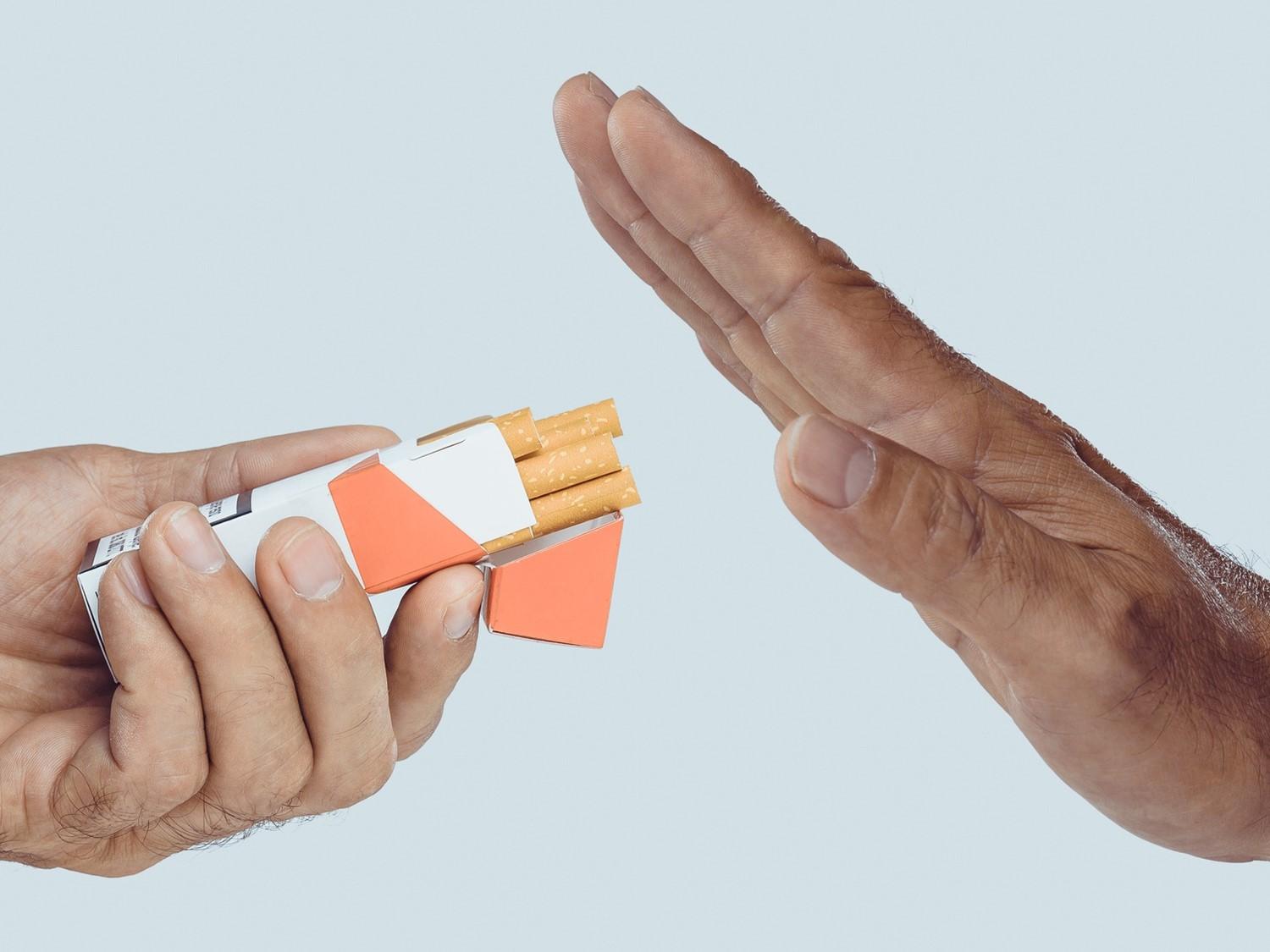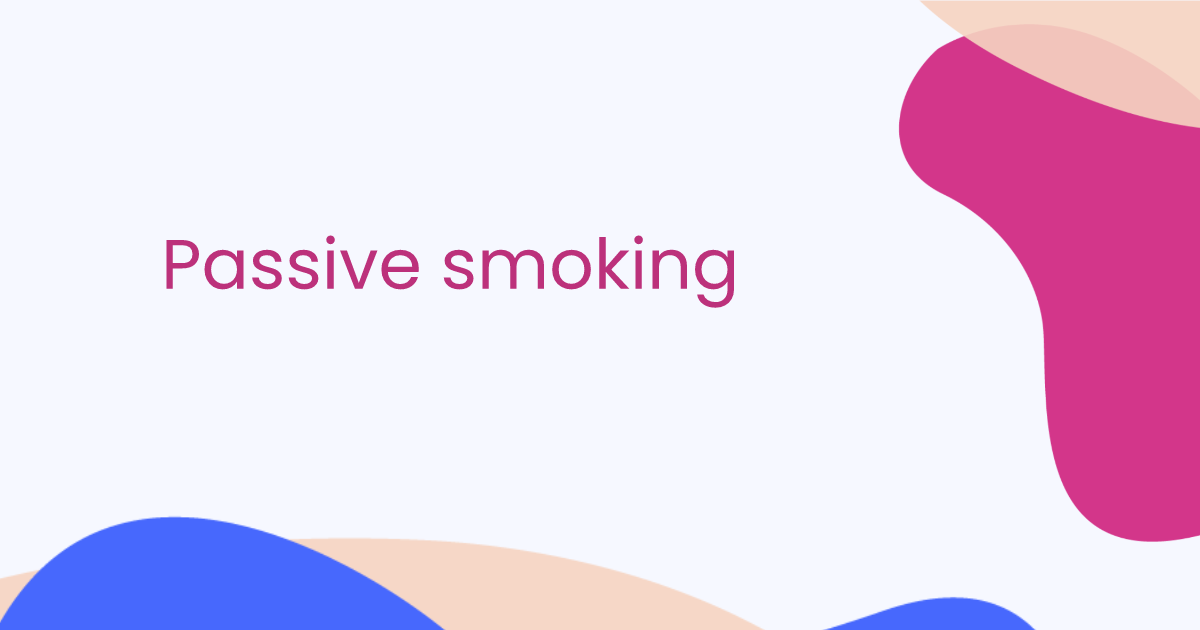Benefits of stopping smoking
Peer reviewed by Dr Hayley Willacy, FRCGP Last updated by Dr Toni Hazell, MRCGPLast updated 16 May 2023
Meets Patient’s editorial guidelines
- DownloadDownload
- Share
- Language
- Discussion
In this series:SmokingHow to quit smokingPassive smokingAre e-cigarettes safe?Nicotine replacement therapyBupropion for quitting smoking
Stopping smoking can make a big difference to your health and lifestyle. It is never too late to stop smoking to greatly benefit your health. For example, if you stop smoking in middle age, before having cancer or some other serious disease, you avoid most of the increased risk of death due to smoking. Help is available if you find it difficult to stop smoking.
In this article:
Continue reading below
Health benefits of stopping smoking
The benefits from stopping smoking begin straightaway. The following are examples of the dangers that can be avoided or reduced by quitting smoking.
You reduce your risk of getting serious disease no matter what age you give up. However, the sooner you stop, the greater the reduction in your risk. In fact, researchers have found that if you stop smoking before the age of 50 your risk of dying prematurely is virtually reduced to that of a non-smoker. Even if you give up after the age of 60, your risk of dying at any given age is reduced by about 39% compared to a person who carries on smoking.
If you stop smoking you:
Reduce the risk of getting serious smoking-related diseases such as heart disease, cancers, chronic obstructive pulmonary disease (COPD) and peripheral arterial disease.
Reduce the risk of getting various other conditions which, although not life-threatening, can cause unpleasant problems. For example:
Erection problems (impotence).
Fertility problems.
Optic neuropathy - this is a condition affecting the nerve supplying the eye.
A breakdown of the tissue at the back of the eye (macular degeneration).
A skin condition called psoriasis.
Gum disease.
Tooth loss.
'Thinning' of the bones (osteoporosis).
Raynaud's phenomenon - in this condition, fingers turn white or blue when exposed to cold.
Reduce the risk of pregnancy complications if you are pregnant.
If you have smoked since being a teenager or young adult:
If you stop smoking before the age of about 35, your life expectancy is only slightly less than it is for people who have never smoked.
If you stop smoking before the age of 50, you decrease the risk of dying from smoking-related diseases by 50%.
It is never too late to stop smoking to gain health benefits. Even if you already have COPD or heart disease, your outlook (prognosis) is much improved if you stop smoking.
Timeline of health benefits after stopping smoking
After | Health Benefit |
72 hours | Breathing becomes easier. Bronchial tubes begin to relax and energy levels increase. |
1 month | Skin appearance improves, owing to improved skin perfusion. |
3-9 months | Cough, wheezing, and breathing problems improve and lung function increases by up to 10%. |
1 year | Risk of a heart attack falls to about half that of a smoker. |
10 years | Risk of lung cancer falls to about half that of a smoker. |
15 years | Risk of heart attack falls to the same level that it would be for someone who has never smoked. |
Other benefits of stopping smoking
Benefits include:
Your breath won't smell any more of stale tobacco.
The smell of stale tobacco will also go from your clothes, hair and home.
Foods and drinks taste and smell much better.
Finances improve. You may well save as much as £3,000 per year if you smoked 20 a day.
Better rates of insurance policies.
You are likely to feel good about yourself.
Patient picks for Smoking

Healthy living
Smoking
Cigarette smoking is the greatest single cause of illness and premature death in the UK. Worldwide, tobacco kills 7 million people every year. Almost a million deaths are due to non-smokers being exposed to second-hand smoke.
by Dr Hayley Willacy, FRCGP

Healthy living
Passive smoking
You have an increased risk of lung cancer and heart disease if you are exposed to other people smoking for long periods of time.
by Dr Colin Tidy, MRCGP
Further reading and references
- Hughes JR, Stead LF, Hartmann-Boyce J, et al; Antidepressants for smoking cessation. Cochrane Database Syst Rev. 2014 Jan 8;1:CD000031. doi: 10.1002/14651858.CD000031.pub4.
- Wu J, Sin DD; Improved patient outcome with smoking cessation: when is it too late? Int J Chron Obstruct Pulmon Dis. 2011;6:259-67. doi: 10.2147/COPD.S10771. Epub 2011 May 2.
- E-cigarettes: an evidence update; Public Health England, August 2015
- Hackshaw A, Morris JK, Boniface S, et al; Low cigarette consumption and risk of coronary heart disease and stroke: meta-analysis of 141 cohort studies in 55 study reports. BMJ. 2018 Jan 24;360:j5855.
- Reid RD, Pritchard G, Walker K, et al; Managing smoking cessation. CMAJ. 2016 Dec 6;188(17-18):E484-E492. doi: 10.1503/cmaj.151510. Epub 2016 Oct 3.
- Tobacco: preventing uptake, promoting quitting and treating dependence; NICE guideline (2021 - last updated February 2025)
- Smoking cessation; NICE CKS, April 2023 (UK access only)
- Hartmann-Boyce J, McRobbie H, Lindson N, et al; Electronic cigarettes for smoking cessation. Cochrane Database Syst Rev. 2021 Apr 29;4(4):CD010216. doi: 10.1002/14651858.CD010216.pub5.
Continue reading below
Article history
The information on this page is written and peer reviewed by qualified clinicians.
Next review due: 12 May 2028
16 May 2023 | Latest version

Ask, share, connect.
Browse discussions, ask questions, and share experiences across hundreds of health topics.

Feeling unwell?
Assess your symptoms online for free
Sign up to the Patient newsletter
Your weekly dose of clear, trustworthy health advice - written to help you feel informed, confident and in control.
By subscribing you accept our Privacy Policy. You can unsubscribe at any time. We never sell your data.